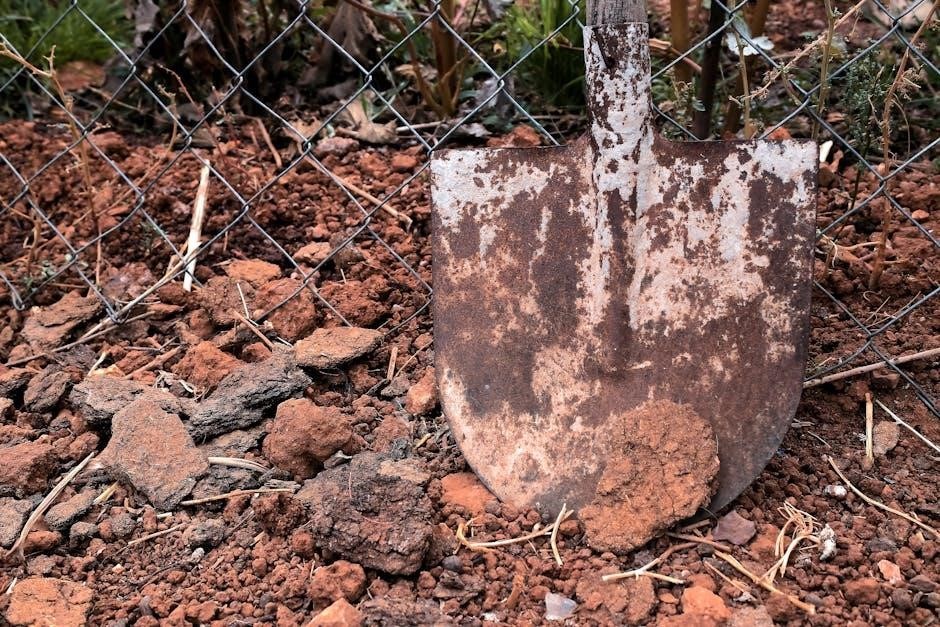The Louisiana CDL Manual is an essential guide for commercial drivers, providing detailed rules, safety tips, and licensing procedures. It helps prepare for CDL tests and ensures safe driving practices.
Designed for both new and experienced drivers, the manual covers critical information on vehicle operation, traffic laws, and regulatory requirements specific to Louisiana. It is a vital resource for obtaining and maintaining a Commercial Driver’s License (CDL) in the state.
Overview of the CDL Manual
The Louisiana CDL Manual is a comprehensive guide designed to help commercial drivers understand state-specific rules, safety practices, and licensing requirements. It covers essential topics such as vehicle operation, traffic laws, and regulatory compliance. The manual is divided into sections, including safe driving practices, medical requirements, and application processes, ensuring drivers are well-prepared for CDL tests and responsible operation of commercial vehicles.
Importance of the CDL Manual for Commercial Drivers
The Louisiana CDL Manual is crucial for commercial drivers as it provides the necessary knowledge to operate safely and legally. It ensures compliance with state and federal regulations, reducing risks of accidents and violations. Understanding the manual is essential for passing CDL tests and maintaining a valid license, which is vital for employment in the commercial driving industry.
Structure and Content of the Louisiana CDL Manual
The Louisiana CDL Manual is divided into sections covering rules, safe driving practices, and licensing procedures. It includes detailed chapters on medical requirements, traffic laws, and vehicle inspections.
Sections and Chapters Overview
The Louisiana CDL Manual is organized into clear sections and chapters, ensuring easy navigation. It begins with an introduction, followed by eligibility criteria, application processes, and detailed chapters on safe driving practices, endorsements, and disqualifications. Each section is designed to provide comprehensive information tailored to commercial drivers, making it a thorough guide for obtaining and maintaining a CDL in Louisiana.
Key Topics Covered in the Manual
The Louisiana CDL Manual covers essential topics such as vehicle inspection, traffic laws, and safe driving practices. It also includes detailed information on endorsements, disqualifications, and medical requirements. Additionally, the manual addresses rules for operating commercial vehicles, load securement, and emergency procedures. These topics are crucial for both new and experienced drivers to ensure compliance with state and federal regulations.
Eligibility Criteria for Obtaining a CDL in Louisiana
The Louisiana CDL Manual outlines eligibility criteria, including age, residency, and medical requirements. Applicants must meet these standards to qualify for a Commercial Driver’s License (CDL).
Age Requirements and Residency
In Louisiana, CDL applicants must be at least 21 years old for interstate commerce and 18 years old for intrastate operations. Applicants must also be legal residents of Louisiana, providing proof of residency and identity. These requirements ensure eligibility for a Commercial Driver’s License, aligning with federal and state regulations to maintain road safety and compliance standards.
Medical Requirements and Background Checks
Applicants for a Louisiana CDL must pass a Department of Transportation (DOT) physical exam by a certified medical examiner to ensure they meet federal health standards. Additionally, a thorough background check is required, including criminal history and driving record reviews. For certain endorsements, such as hazmat, additional security screenings by the Transportation Security Administration (TSA) may be necessary to ensure public safety and regulatory compliance.

Application Process for a CDL in Louisiana
Visit the Louisiana DMV, submit required documents, pass necessary tests, pay fees, and obtain a Commercial Learner’s Permit before receiving your CDL.
Steps to Apply for a CDL
To apply for a CDL in Louisiana, visit your local DMV office, submit required documents, and pass the vision test. Study the Louisiana CDL Manual to prepare for the written knowledge test. Once passed, obtain a Commercial Learner’s Permit (CLP); Schedule and complete the skills test, which includes a pre-trip inspection, basic vehicle control, and on-road driving. Pay the applicable fees and complete all requirements to receive your CDL.
Required Documents and Fees
To apply for a CDL in Louisiana, you must provide proof of identity, residency, and legal presence. Submit a completed CDL application, a valid medical examiner’s certificate, and pass a vision test. Fees include a $61.50 base fee for a 6-year license, plus additional costs for endorsements or restrictions. Ensure all documents are current and meet state requirements before submitting your application.

CDL Written Test and Preparation
The CDL written test assesses knowledge of traffic laws, safety procedures, and vehicle operation. Thorough study of the Louisiana CDL Manual is essential for success.
What to Expect on the Written Test
The Louisiana CDL written test evaluates knowledge of commercial driving laws, safety practices, and vehicle operation. Expect multiple-choice questions covering topics such as road safety, vehicle inspection, and traffic regulations. The test format varies by license class and endorsements. A passing score is required to proceed to the skills test. Allocate time wisely and review all questions carefully to ensure accuracy.
Study Tips and Resources
Effective preparation for the Louisiana CDL written test requires a structured approach. Start by thoroughly reviewing the Louisiana CDL Manual, focusing on sections relevant to your license class. Utilize online practice tests to familiarize yourself with the format and content. Focus on weak areas and review them regularly. Consider joining a study group or using flashcards to reinforce key concepts.
Allocate time for daily study sessions and ensure a quiet, distraction-free environment. Use the manual’s glossary and diagrams to better understand complex topics. Take breaks to avoid burnout and maintain focus. By following these tips, you can efficiently prepare and improve your chances of passing the written test with confidence.

Safe Driving Practices and Regulations
The Louisiana CDL Manual emphasizes pre-trip inspections, adherence to traffic laws, and defensive driving techniques. Regular vehicle maintenance and proper load securement are also critical for safety compliance.
Understanding and following hours of service regulations, weight limits, and hazard material guidelines is essential. Violations can lead to disqualification, making safe practices a top priority for all drivers.
Vehicle Inspection and Maintenance
Vehicle inspection and maintenance are critical for safe operation. The Louisiana CDL Manual outlines pre-trip and post-trip inspection procedures, including checks for brakes, tires, lights, and mirrors. Regular maintenance ensures compliance with safety standards, reducing the risk of mechanical failures. Drivers must document inspections and address any issues promptly to maintain operational safety and adhere to federal and state regulations.
Rules of the Road and Traffic Laws
The Louisiana CDL Manual emphasizes the importance of understanding traffic laws, including right-of-way rules, braking distances, and following distances. It outlines specific regulations for commercial vehicles, such as weight restrictions and lane usage. Adhering to these rules is crucial for safety and compliance, as violations can lead to disqualification of a CDL. Drivers must stay informed on state-specific laws to ensure legal and safe operation.

Endorsements and Restrictions
Endorsements and restrictions define a CDL holder’s privileges and limitations. Endorsements require additional testing for specialized vehicles, while restrictions limit driving privileges based on qualifications or violations.
Types of Endorsements Available
Louisiana offers various CDL endorsements, each requiring specific tests. Common endorsements include Hazardous Materials (H), Tank Vehicles (N), Doubles/Triples Trailers (T), and Passenger Vehicles (P). These endorsements expand driving privileges, allowing operation of specialized vehicles. They enhance career opportunities and operational flexibility for commercial drivers, ensuring they meet federal and state regulations for safe and efficient transportation.
Understanding Restrictions on a CDL
Restrictions on a CDL limit the types of vehicles or operations a driver can perform. Common restrictions include “E” for automatic transmission-only vehicles or “O” for trailers with no tractor-trailer operation. These restrictions ensure drivers operate only vehicles they are trained and tested for, enhancing safety and compliance with federal and state regulations. Violating restrictions can lead to penalties and loss of driving privileges.

License Fees and Renewal Process
In Louisiana, CDL fees vary by class and endorsements. Renewal typically occurs every 5 years, with specific documentation and fees required to maintain licensure.
Cost of Obtaining and Renewing a CDL
The cost of obtaining a CDL in Louisiana varies by class and endorsements. Class A, B, and C licenses typically range between $50 to $200. Endorsements, such as HAZMAT or tanker, add extra fees. Renewal fees are similar, with a 5-year renewal cycle. Additional costs may include medical exams, background checks, and testing fees. Discounts are available for military veterans and first responders.
Renewal Requirements and Timeline
A Louisiana CDL must be renewed every 5 years. Drivers must submit a renewal application, provide updated medical certification, and pay the renewal fee. Additional documentation, such as proof of residency, may be required. Renewal can be done online, by mail, or in person at a local OMV office. A vision test may be necessary for certain endorsements. Apply 60 days before expiration to avoid penalties.

Disqualifications and Violations
Certain offenses can lead to CDL disqualification, including reckless driving, DUI, and serious traffic violations. Penalties may include license suspension, fines, and mandatory training programs.
Common Violations Leading to Disqualification
Common violations leading to CDL disqualification include reckless driving, DUI, speeding, improper lane changes, and following too closely. Other offenses, such as failing to stop at weigh stations or violating hours-of-service rules, can also result in penalties. These violations jeopardize public safety and may lead to CDL suspension or revocation, impacting a driver’s career.
- Reckless or aggressive driving
- Driving under the influence (DUI)
- Excessive speeding
- Improper lane changes
- Following too closely
Understanding these violations is crucial for maintaining a valid CDL and ensuring safe road operations.
Consequences of Traffic Violations
Traffic violations for CDL holders in Louisiana can result in fines, penalties, and license suspension. Severe offenses may lead to CDL disqualification, impacting employment. Multiple violations can escalate consequences, including higher insurance rates and potential loss of driving privileges. Understanding these repercussions is crucial for maintaining a valid CDL and adhering to state and federal regulations.

Additional Resources and Support
For further guidance, visit the Louisiana Office of Motor Vehicles website or consult local CDL training centers. These resources offer updated manuals, practice tests, and expert advice for commercial drivers.
Where to Find More Information
Visit the Louisiana Office of Motor Vehicles website for the latest CDL manual and resources. Local driver training schools and DMV offices also provide guidance and materials. Use search engines to find official state-specific information, ensuring accuracy and relevance for commercial driver licensing requirements in Louisiana.
CDL Training Programs and Schools
Louisiana offers various CDL training programs through accredited schools and institutions. These programs provide hands-on experience and classroom instruction to prepare for the CDL exam. Many schools offer flexible schedules, experienced instructors, and job placement assistance. They cover essential topics like vehicle operation, safety regulations, and state-specific requirements to ensure comprehensive preparation for a successful CDL application in Louisiana.
